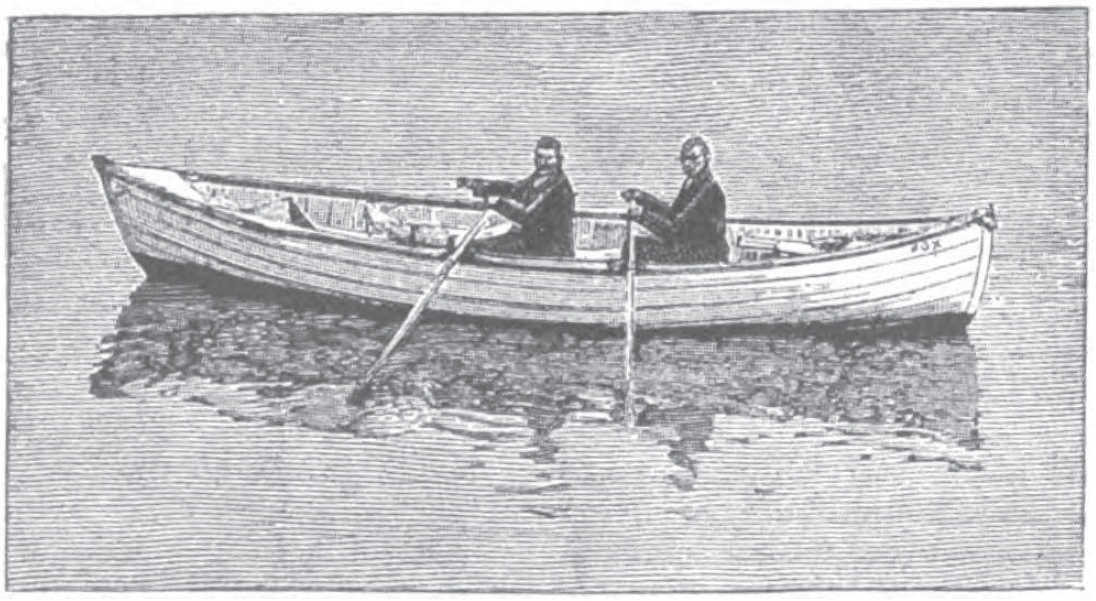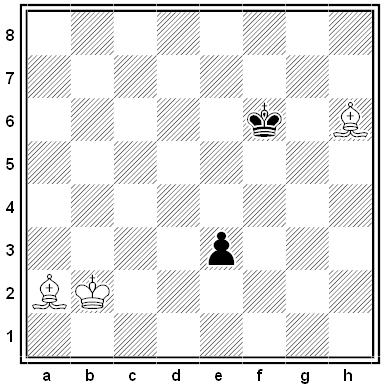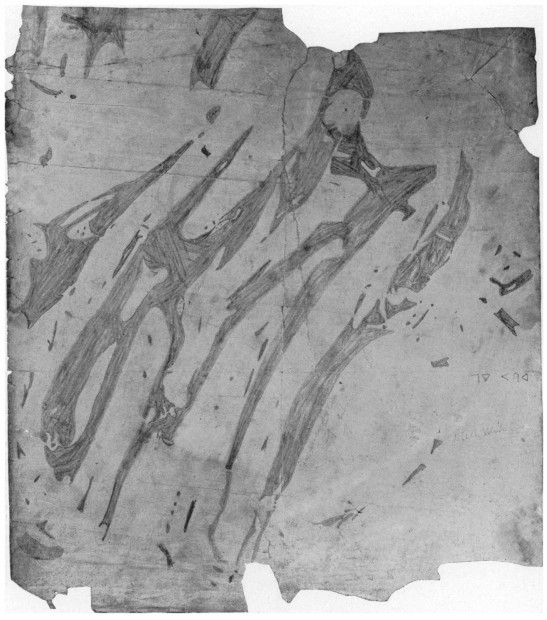
“Such a question as, Why does everything in Spain look Spanish? is one of those apparently idiotic questions that opens up quite unexpected areas of vision.” — Northrop Frye, “Spirit and Symbol,” Words With Power, 2008

“Such a question as, Why does everything in Spain look Spanish? is one of those apparently idiotic questions that opens up quite unexpected areas of vision.” — Northrop Frye, “Spirit and Symbol,” Words With Power, 2008

In 1896 two New Jersey clam diggers made a bold bid for fame: They set out to cross the North Atlantic in a rowboat, a feat that had never been accomplished before. In this week’s episode of the Futility Closet podcast we’ll follow the adventure of George Harbo and Frank Samuelsen, which one newspaper called “the most remarkable event in the way of ocean navigation that ever transpired.”
We’ll also meet some military mammals and puzzle over a thwarted burglar.

During World War II, Alan Turing enrolled in the infantry section of the Home Guard so that he could learn to shoot a rifle. After completing this section of his training he stopped attending parades, as he had no further use for the service. Summoned to account for this, he explained that he was now an excellent shot and this was why he had joined.
“But it is not up to you whether to attend parades or not,” said Colonel Fillingham. “When you are called on parade, it is your duty as a soldier to attend.”
“But I am not a soldier.”
“What do you mean, you are not a soldier! You are under military law!”
“You know, I rather thought this sort of situation could arise,” Turing said. “I don’t know I am under military law. If you look at my form you will see that I protected myself against this situation.”
It was true. On his application form Turing had encountered the question “Do you understand that by enrolling in the Home Guard you place yourself liable to military law?” He could see no advantage in answering yes, so he answered no, and the clerk had filed the form without looking at it.
“So all they could do was to declare that he was not a member of the Home Guard,” remembered Peter Hilton. “Of course that suited him perfectly. It was quite characteristic of him. And it was not being clever. It was just taking this form, taking it at its face value and deciding what was the optimal strategy if you had to complete a form of this kind. So much like the man all the way through.”
(From Andrew Hodges, Alan Turing: The Enigma, 1992.)

New York radio station WQXR used to inflict this pronunciation test on prospective announcers — try reading it aloud:
The old man with the flaccid face and dour expression grimaced when asked if he were conversant with zoology, mineralogy, or the culinary arts. ‘Not to be secretive,’ he said, ‘I may tell you that I’d given precedence to the study of genealogy. But since my father’s demise, it has been my vagary to remain incognito because of an inexplicable, lamentable, and irreparable family schism. It resulted from a heinous crime, committed at our domicile by an impious scoundrel. To err is human … but this affair was so grievous that only my inherent acumen and consummate tact saved me.’
It’s a minefield. In Another Almanac of Words at Play, Willard R. Espy lists the pronunciations that were considered correct:
flaccid FLACK-sid inexplicable in-EX-plic-able dour DOO-er lamentable LAM-entable grimaced gri-MACED irreparable ear-REP-arable conversant KON-ver-sant schism SIZ-m zoology zoh-OL-o-ji heinous HAY-nus mineralogy miner-AL-o-ji domicile DOMM-i-sil culinary KEW-li-ner-y impious IM-pee-yus secretive see-KEE-tiv err ur precedence pre-SEED-ens grievous GREEV-us genealogy jan-e-AL-o-ji inherent in-HERE-ent demise de-MIZE acumen a-KEW-men vagary va-GAIR-y consummate (adj.) kon-SUMM-it incognito in-KOG-ni-toe
Getting 20 of the 25 “stumpers” right was considered excellent. But that was 40 years ago, and even at the time Espy found 21 dictionary listings that accepted different pronunciations. “So not to worry when you don’t sound like WQXR,” he wrote. “One man’s AB-do-men is another man’s ab-DOUGH-men.”

Billiards chess is a variant of traditional chess in which the pieces carom off the sides of the board at right angles. In the diagram above, the white bishop at a2 controls the diagonal a2-g8 as in normal chess, but its attack also “bounces” from g8 to h7 and then back along the h7-b1 diagonal. Both bishops attack and move along these “bouncing” lines. How can White mate the black king in two moves?

Before 1914, white explorers of Hudson’s Bay knew very little about the location, size, or number of the Belcher Islands — cartographers placed them on maps largely by guesswork, and some even doubted their existence.
In 1895, an Inuit named Wetalltok sketched the map above on the back of an old missionary lithograph, but explorers remained skeptical. “That a land mass of such extent … could exist not a hundred miles to seaward of the centuries-old post at Great Whale River and remain unknown to the Hudson’s Bay Company seemed to me altogether improbable,” wrote anthropologist Robert J. Flaherty.
Only 20 years later, with Flaherty’s expedition of 1912-16, was the striking accuracy of Wetalltok’s map borne out (below). “In its grasp of the intricacies of the island system this map is a specially noteworthy example of its kind,” Flaherty wrote. “The Big Islands are ancient history in the bay now, and Wetalltok stands vindicated.”

(Robert J. Flaherty, “The Belcher Islands of Hudson Bay: Their Discovery and Exploration,” Geographical Review 5:6 [June 1918], 433-458.)

A puzzle by A. Kozlov from the Soviet popular science magazine Kvant:
Watching a solar eclipse, a girl asks her father how much farther away is the sun than the moon.
He says, “As far as I remember, 387 times farther.”
She says, “Then I can figure out how much greater is the sun’s volume than the moon’s.”
He thinks about this and says, “I think maybe you can.” How can she do this?

A puzzle from Stuart Collingwood’s Lewis Carroll Picture Book, 1899:
A captive Queen and her son and daughter were shut up in the top room of a very high tower. Outside their window was a pulley with a rope round it, and a basket fastened at each end of the rope of equal weight. They managed to escape with the help of this and a weight they found in the room, quite safely. It would have been dangerous for any of them to come down if they weighed more than 15 lbs. more than the contents of the lower basket, for they would do so too quick, and they also managed not to weigh less either.
The one basket coming down would naturally of course draw the other up.
The Queen weighed 195 lbs., daughter 105, son 90, and the weight 75.
How did they do it?

In 1961, irate at receiving a bill for an £85 surtax from the Inland Revenue, A.P. Herbert sent them a check in verse:
Dear Bankers, PAY the undermentioned hounds
The shameful sum of FIVE-AND-EIGHTY POUNDS
By “hounds,” of course, by custom, one refers
To SPECIAL INCOME TAX COMMISSIONERS:
And these progenitors of woe and worry
You’ll find at LYNWOOD ROAD, THAMES DITTON, SURREY.
This is the second lot of tax, you know,
On money that I earned two years ago.
(The shark, they say, by no means nature’s knight,
Will rest contented with a single bite:
The barracuda, who’s a fish more fell,
Comes back and takes the other leg as well.)
Two years ago. But things have changed since then.
I’ve reached the age of threescore years and ten.
My earnings dwindle; and the kindly State
Gives me a tiny pension — with my mate.
You’d think the State would generously roar
“At least he shan’t pay surtax any more.”
Instead by this un-Christian attack
They get two-thirds of my poor pension back.
Oh, very well. No doubt it’s for the best;
At all events, pray do as I request;
And let the good old customs be enforced —
Don’t cash this check, unless it is endorsed.
To his astonishment he received this reply:
Dear Sir,
It is with pleasure that I thank
You for your letter and the order to your bank
To pay the sum of five and eighty pounds
To those here whom you designate as hounds.
Their appetite is satisfied. In fact,
You paid too much and I am forced to act,
Not to repay you, as perchance you dream,
Though such a course is easy, it would seem.
Your liability for later years
Is giving your accountants many tears;
And ’til such time as they and we can come
To amicable settlement on the sum
That represents your tax bill to the State
I’ll leave the overpayment to its fate.
I do not think this step will make you frown:
The sum involved is only half-a-crown.
Yours faithfully,
A.L. Grove
He wrote back:
I thank you, Sir, but am afraid
Of such a rival in my trade:
One never should encourage those —
In the future I shall pay in prose.

“Travelling is one Way of lengthening Life, at least in Appearance. It is but a Fortnight since we left London; but the Variety of Scenes we have gone through makes it seem equal to Six Months living in one Place.” — Benjamin Franklin, letter to Mary Stevenson, from Paris, Sept. 14, 1767